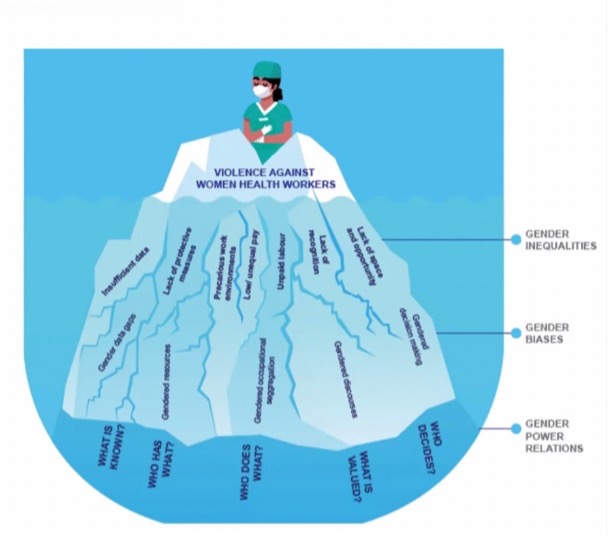Report by Siren Fadler, SI UN Representative
CSW 65 Side Event by United Nations University International Institute for Global Health
The 25 years since the visionary Beijing Declaration and Platform for Action for Women have seen dramatic changes globally. While there has been important progress on some fronts, new challenges have emerged, including the current COVID-19 pandemic. At the same time, the concerns outlined 25 years ago remain deafeningly relevant for women’s and girl’s rights.
Summary of the discussions:
Asha George, who works as a qualitative researcher engaged with health systems to advance health and social justice in low- and middle-income countries, said violence against female health workers is the tip of iceberg of gender power imbalance. Beijing conference recognised women as key providers of health and not just users of health care. Twenty-five years after the predominantly female profile of the health workforce, we recognise that the contributions of this largely female workforce is held back for a several reasons. One of the more extreme and harmful factors is the violence perpetrated against women health workers, and such violence continues. Responses to such violence must go beyond mitigating individual cases and understand the systematic gender equalities underpinning them.

Veloshnee Govender, a health economist and health policy and system researcher, mentioned employment-based health financing which does not support gender equality in a universal health coverage. Women face more employment insecurity across their work lives, including reproduction and unpaid care work. Women’s access to healthcare is threatened when linked to their employment status and conditions. We need gender equitable universal health coverage reforms to ensure continuity of access to high quality health benefits and financial protection during changing circumstances. Women perform more than 80% of unpaid care work in addition to being over-represented in informal sector and in non-standard work; women are more vulnerable than men.
She argued that employment based health entitlement is a problem because women are less likely to have long term contracts, work lives are often fragmented by transitions such as reproduction, care responsibilities, and voluntary and involuntary unemployment. Since the employment-based schemes are a problem for gender equality, Veloshnee Govender suggested one of the policy solutions must be to advocate for universal healthcare entitlements, mandatory inclusion in national schemes and general tax contributions to finance health.
Asha George said there is lack of opportunities and preparedness to lead. Very few women make it into leadership and sit at the table where decision-making happens. Once in leadership they are not supported to lead in a male dominated medical hierarchy. Professional associations and regulatory bodies must be more representative and lead on this issue. She also argues that women health workers themselves must find their voice and mobilise collective action. The key message: There is a lack of political commitment to women’s health and gender equality.


